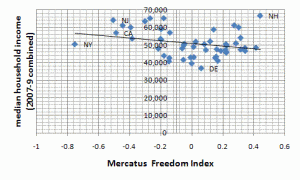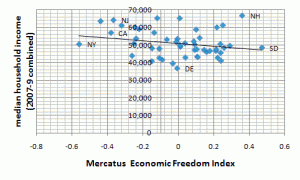- Facebook1.0K
- Total 1.0K
When the lead headline of the New York Times reads, “Greek Turmoil Raises Fears of Instability Around Europe,” and the whole world’s economy is vulnerable to political decisions in this country of about 11 million, here is something important to note about Greece. About 27%-30% of the Greek economy is “informal”: off the books, in the shadows, unreported, or otherwise shielded from taxation (see Stavros Katsios’ analysis, in PDF). That compares to about eight percent of the US economy.
The consequences are severe and directly relevant to the current crisis. It’s hard to balance the budget when nearly one third of economic activity is arbitrarily shielded from taxation. It is equally difficult to muster political support for steep tax increases and deep spending cuts (which are necessary to balance the budget) if some people pay what they owe and others pay nothing. To make matters worse, the ones who avoid taxes are likely to be affluent and well-connected. I wouldn’t vote to cut my own retirement benefits and raise my own taxes if I thought that my wealthiest compatriots could shield their income from the government.
Tax avoidance doesn’t come free but requires bribes known as “speed money,” and political quid pro quos that are costly. Finally the whole economic system (the least efficient in Europe) is hampered because people arbitrarily channel their investments and consumption into the informal economy.
I can’t say what to do about this, because reform strategies always depend on local conditions, traditions, and leaders. The country that coined the word “xenophobia” (and that lost 520,000 lives during the Nazi occupation) is evidently reluctant to be pushed around by outsiders. But the idea of enforcing Greece’s own laws should be relatively palatable to Greeks. That is not an imperialistic concept foisted on them by the Germans (through the European Central Bank) or the IMF. In any case, the size of the Greek informal economy is our problem insofar as it contributes to an international economic crisis.

